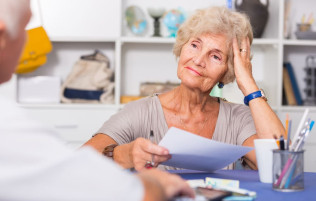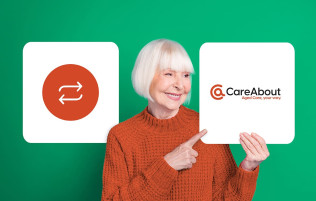Simple ways to prevent falls at home

Falls are one of the biggest risks for older Australians, and they can happen in an instant. A small trip over a rug, a slip in the bathroom or even just losing balance while getting up from a chair – these everyday moments can lead to serious injuries. But here’s the good news: most falls can be prevented with a few simple changes!
Stay independent and safe at home by following these simple tips that reduce your risk of having a fall and keep you moving with confidence.
Why fall prevention matters
Falls are more common than you might think. In Australia, one in four people over 65 experiences a fall each year, and many of these lead to hospital stays. Beyond the physical injuries, falls can shake your confidence and make you hesitant about activities you once performed freely. That’s why it’s essential to take proactive steps to prevent them before they happen.
Top tips for preventing falls
1. Make your home fall-proof
Your home should be a safe space, not an obstacle course! A few quick changes can make a world of difference:
- Remove loose rugs or secure them with non-slip backing.
- Keep walkways clear of clutter, cords and furniture.
- Ensure there’s good lighting in hallways, staircases and bathrooms.
- Install grab rails in the bathroom and near steps.
- Use non-slip mats in the shower and kitchen.
2. Wear the right shoes
Slippers might be comfy, but they can also be slippery! Opt for sturdy, well-fitting shoes with non-slip soles to improve your balance and reduce the risk of slipping.
3. Keep moving
Staying active is one of the best ways to maintain strength and balance. Low-impact exercises can make a big difference:
- Balance exercises – simple standing exercises, like heel-to-toe walking, improve stability.
- Walking – keeps your legs strong and improves coordination.
- Tai chi – proven to enhance balance and prevent falls.
- Strength training – helps maintain muscle mass and stability.
4. Check your vision and hearing
If you can’t see or hear well, you’re more likely to trip or lose balance. Make sure to:
- have regular eye check-ups and update your glasses if needed
- get your hearing tested – inner ear problems can affect balance.
5. Review your medications
Some medications can cause dizziness or drowsiness, increasing the risk of falls. If you notice any of these side effects, speak to your doctor about adjusting your prescriptions or finding alternatives.
6. Use assistive devices
If you need extra support, don’t hesitate to use aids such as:
- a walking stick or walker for extra stability
- a shower chair to prevent slips in the bathroom
- a smart watch with a falls detection feature or emergency alarm system for quick help if needed.
What to do if you have a fall
Even with all the right precautions, falls can still happen. If you do fall:
- Stay calm – take a few deep breaths and assess if you’re hurt.
- Call for help – if you can’t get up, use a phone, emergency button or call out for assistance.
- Take your time – if you’re not injured, roll onto your side, get onto your hands and knees, and slowly use a sturdy chair to help yourself up.
- See your doctor – even if you feel fine, check in with your doctor to ensure there are no hidden injuries.
Stay safe, stay independent
Preventing falls isn’t just about avoiding injury – it’s also about maintaining your confidence and independence. Small adjustments to your home, daily habits and health checks can all make a difference.
Did you know?
You can use your Home Care Package to help prevent falls. The vast range of services available through a Home Care Packages can help you to stay strong and mobile, and greatly reduce your falls risk.
If you need help making your home safer or accessing support services, CareAbout can connect you with the right Home Care Package provider. Get in touch today and take the first step towards a safer, more independent future!








